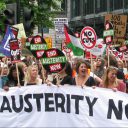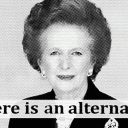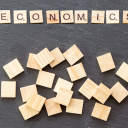Will the real rethinkers please stand up?

The Bank of England. Captain Roger Fenton / Flickr. Public domain.
In a recent article in the Financial Times, Samuel Bowles applauded critics of economics education and praised calls for greater pluralism (diversity of viewpoints) within the discipline. He then went on to explain how the newly published CORE textbook, which is being promoted as an alternative economics text for undergraduates, provides the answer to this problem. But don’t be deceived: the battle for pluralism in economics has barely begun.
Rethinking Economics welcomes CORE’s incorporation of a variety of thinkers in their curriculum, as well as their efforts to make economics more real and engaging for economics students. However, it is vital to recognise the distinction between what CORE labels as pluralism, and how Rethinking Economics defines it.
In the article Bowles refers to ‘pluralism by integration’. This is the use of a variety of schools of thought in the development of a modified economic model, and is the only one to be taught to students in the CORE curriculum. The origins of the various ideas and assumptions employed in the CORE textbook are not always acknowledged, and alternative interpretations are rarely mentioned, so students are presented with what appears to be a singular version of economic truth. This doesn’t facilitate critical engagement or challenge, and is therefore vulnerable to creating the kind of ‘groupthink’ that the IMF has recognised contributed to the 2008 financial crisis.
Rethinking Economics, on the other hand, believes that students should have the chance to learn about multiple paradigms and models, and use their own critical faculties to decide which aspects of these are useful in analysing the real world. It is up to students to decide what school of thought they prefer, in a similar fashion to how one decides their own political and social leanings.
This is what Samuel Bowles calls ‘pluralism by juxtaposition’, but it can also be described as methodological pluralism. This is the approach represented by the new reader published by Rethinking Economics: an introduction to nine different schools of economics, in nine separate chapters, ready for students to absorb, critique and use. This encourages students to think critically about what they’re learning — a vital skill for employment after university.
Rethinking Economics does not advocate teaching just one paradigm to students, even if that one paradigm is made up of a variety of complementing views. This approach risks creating a new economic dogma which will ultimately limit students learning and the economics discipline itself
Recent media coverage has given the impression that the answer to university economics university education has arrived in the form of CORE. This was reinforced by a recent Bloomberg interview which gave the impression that Wendy Carlin, lead editor of the CORE textbook, represented the student movement Rethinking Economics. This is highly misleading, and it is important that it is challenged.
Wendy Carlin, lead editor of the CORE textbook, is implied by Bloomberg’s caption to represent the student movement Rethinking Economics
Rethinking Economics recognises that CORE is a step in the right direction. The teaching of insights from diverse pluralist thinkers from Marx to Hayek, and the incorporation of other social sciences, is something that the student movement welcomes.
But real critical pluralism that reflects the true diversity of real-world perspectives is still a long way off. There is plenty more rethinking yet to be done.





